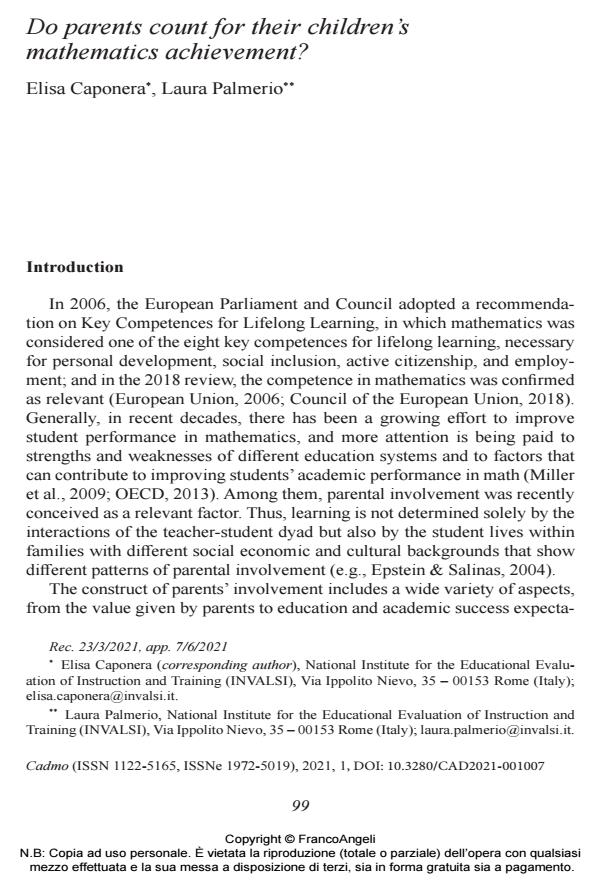Do parents count for their children’s mathematics achievement?
Journal title CADMO
Author/s Elisa Caponera, Laura Palmerio
Publishing Year 2021 Issue 2021/1
Language English Pages 21 P. 99-119 File size 324 KB
DOI 10.3280/CAD2021-001007
DOI is like a bar code for intellectual property: to have more infomation
click here
Below, you can see the article first page
If you want to buy this article in PDF format, you can do it, following the instructions to buy download credits

FrancoAngeli is member of Publishers International Linking Association, Inc (PILA), a not-for-profit association which run the CrossRef service enabling links to and from online scholarly content.
The purpose of this study is to evaluate the relationship between parental involvement and student mathematics achievement using a structural equa¬tion modeling approach. Data from a representative sample of fourth-grade students, and their parents, from 14 different European countries participating in TIMSS (Trends in International Mathematics and Science Study) were analyzed. The model was successful in explaining the TIMSS scores in mathematics: the predicted model showed a good fit to the data, with 31% of the variance explained. The results showed that SES contributed to the prediction of performance in mathematics. However, the results showed also the positive and signifi¬cant effects of parental involvement factors - especially parental expectations for their children’s academic attainment - mediating the relationship between SES and TIMSS math achievement. Thus, increasing parental par¬ticipation could be a useful intervention to reduce SES-related differences in performance.
Keywords: parental involvement, TIMSS, mathematics achievement, path model, mediation effects.
Elisa Caponera, Laura Palmerio, Do parents count for their children’s mathematics achievement? in "CADMO" 1/2021, pp 99-119, DOI: 10.3280/CAD2021-001007